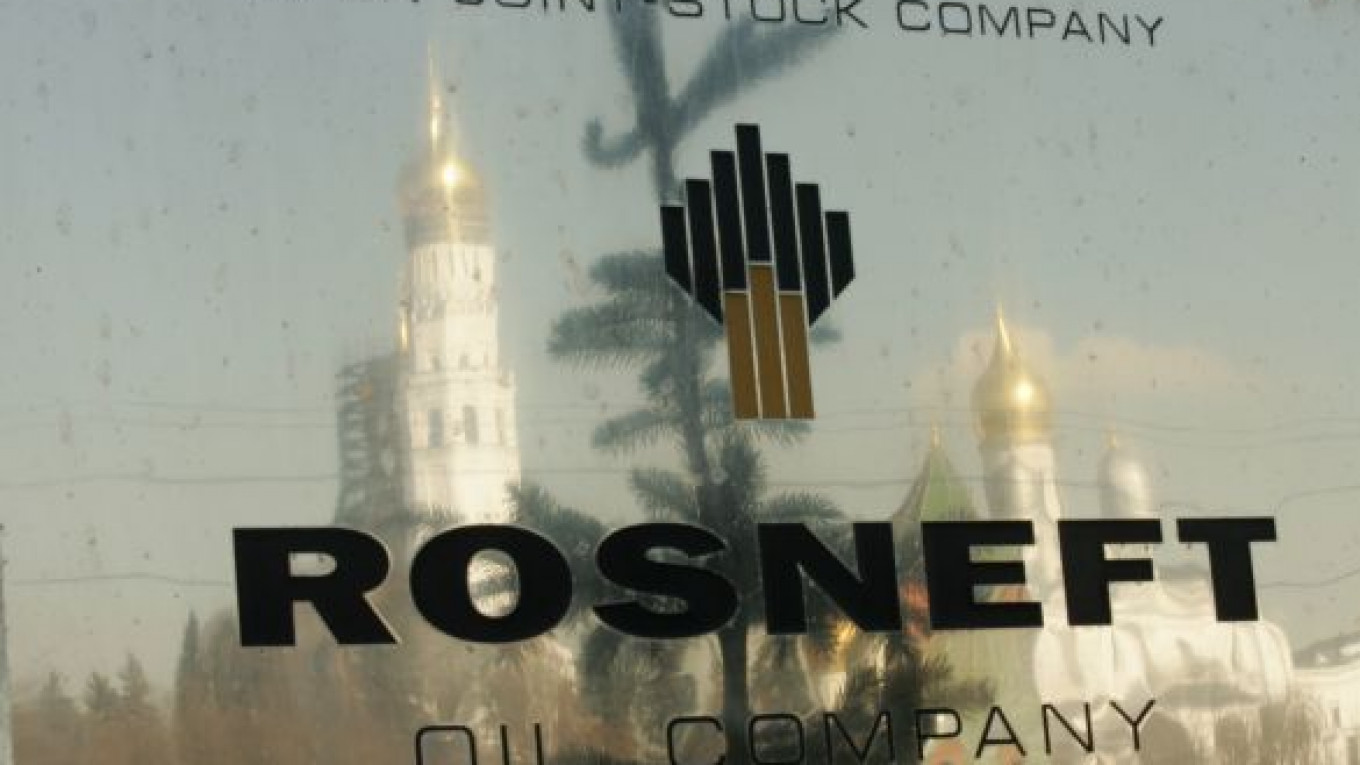The Prosecutor General's Office launched an investigation into a 2009 oil export deal with China in which state-controlled energy giants Rosneft and Transneft borrowed $25 billion, Vedomosti reported Thursday.
The 30-year supply deal, to pump crude through a new eastern pipeline, had been the subject of a pricing dispute that was resolved in March, when Rosneft granted China National Petroleum Corporation, or CNPC, a discount of $1.50 per barrel.
Prosecutors began the investigation in late March at the request of Communist lawmaker Nikolai Kolomeitsev, who said the discount threatens about $3 billion dollars of profits, the newspaper reported. Kolomeitsev was not available for comment.
Interfax news agency quoted an unnamed source at the prosecutor's office as confirming that an investigation was under way and adding that no legal violations have come to light so far.
The scale and nature of the probe was not clear, but prosecutors are obliged by law to open investigations in response to a public filing. Most cases are closed quickly.
China is the single-biggest consumer of oil from Russia's new eastern fields, buying 300,000 barrels per day.
The East Siberia-Pacific Ocean pipeline was financed by a landmark $25 billion loans-for-oil deal, with $15 billion for the supplier of the oil, Rosneft, and $10 billion to pipeline monopoly Transneft.
Rosneft declined to comment on the investigation, although a company source pointed out that the Chinese had originally asked for a bigger discount of $2.50 per barrel. Transneft declined comment.
Meanwhile, Troika Dialog said in a note Thursday that Rosneft's shares might suffer as the oil producer expands its assets at the expense of paying dividends to stockholders.
Troika lowered its recommendation for Rosneft to hold from buying in February as the producer unveiled an increase in spending on refining and petrochemicals projects. The plan followed a cut in debt that dates back to a purchase of assets as part of the liquidation of Yukos, formerly Russia's biggest oil producer.
Interests of minority shareholders and the state aligned as the company sought to boost cash to reduce its debt, while also expanding production. The latest plan to invest free cash in growth projects instead of distributing funds to shareholders may mark a split, the brokerage said.
"We are observing a very dangerous trend in the oil industry, whereby the government's 'modernization' policy has turned into an institutionalized justification to indulge in aggressive spending," Troika wrote in the report.
Output at Rosneft's export-focused Tuapse refinery is set to double in May with the start-up of new capacity, company sources said earlier this week.
Refinery runs would be increased up to 700,000 tons a month after launching a new crude distillation unit at the plant, which produces mostly fuel oil, diesel fuel and naphtha.
The unit "is ready. We will double the loadings starting from May, up to 650,000 to 700,000 tons," one source said.
So far, Tuapse on the Black Sea has processed 4.5 million tons of crude oil a year.
One hurdle — limited capacity on crude oil pipelines leading to Tuapse — could be resolved by the end of the year when Rosneft and pipeline monopoly Transneft are expected to launch a new link.
(Reuters, Bloomberg)
A Message from The Moscow Times:
Dear readers,
We are facing unprecedented challenges. Russia's Prosecutor General's Office has designated The Moscow Times as an "undesirable" organization, criminalizing our work and putting our staff at risk of prosecution. This follows our earlier unjust labeling as a "foreign agent."
These actions are direct attempts to silence independent journalism in Russia. The authorities claim our work "discredits the decisions of the Russian leadership." We see things differently: we strive to provide accurate, unbiased reporting on Russia.
We, the journalists of The Moscow Times, refuse to be silenced. But to continue our work, we need your help.
Your support, no matter how small, makes a world of difference. If you can, please support us monthly starting from just $2. It's quick to set up, and every contribution makes a significant impact.
By supporting The Moscow Times, you're defending open, independent journalism in the face of repression. Thank you for standing with us.
Remind me later.






